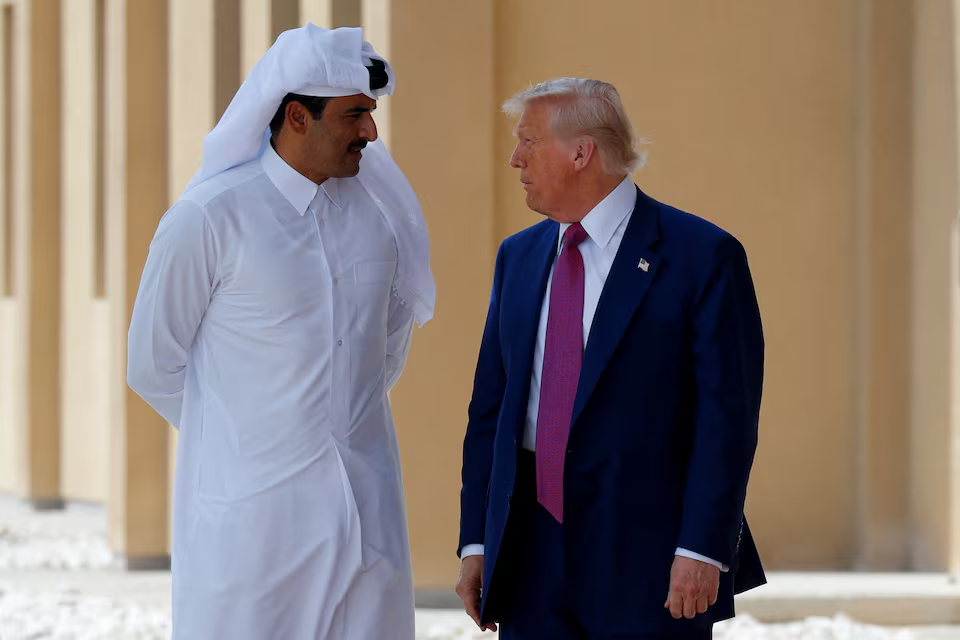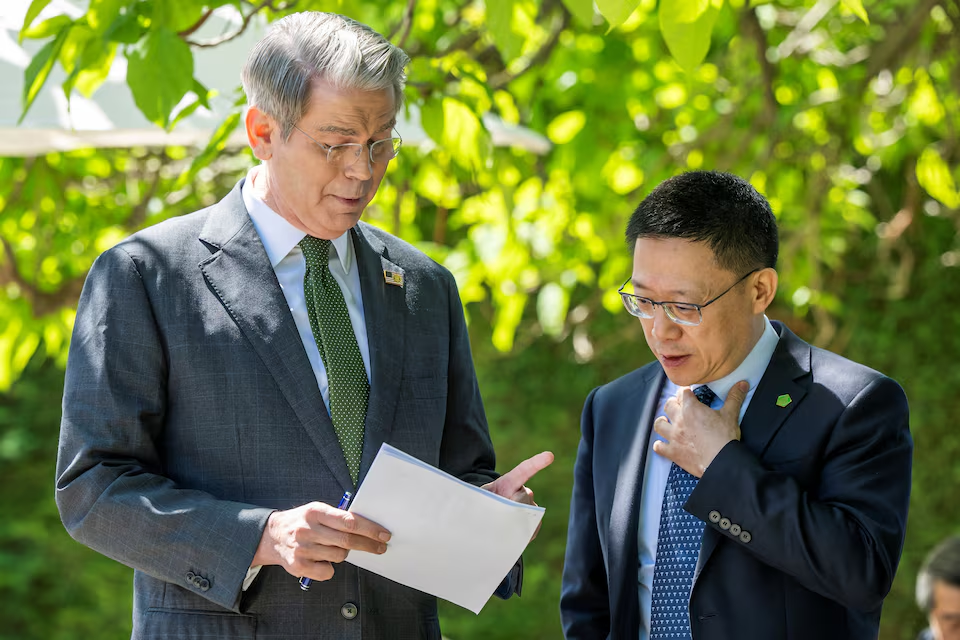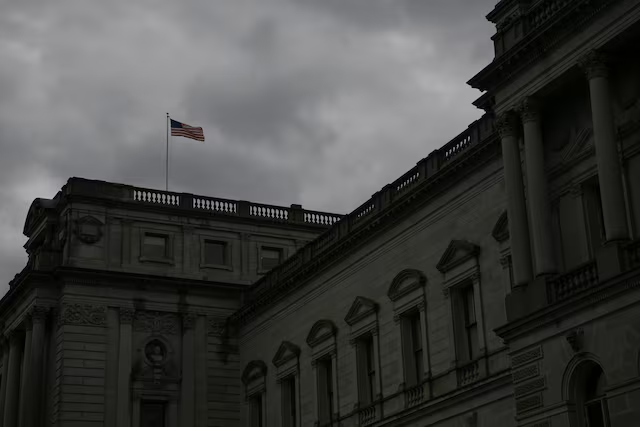Qatar’s Prime Minister Sheikh Mohammed bin Abdulrahman Al Thani defended his country’s decision to gift a Boeing 747 aircraft to U.S. President Donald Trump, calling the gesture a “normal thing that happens between allies”, amid growing scrutiny from both U.S. and international observers over potential conflicts of interest.
Speaking at a press briefing on Tuesday, May 20, 2025, in Doha, the prime minister sought to downplay criticism, stating that the aircraft — a luxury-configured Boeing 747-8 — had been part of a diplomatic gesture aimed at strengthening bilateral ties and was not intended to influence U.S. policy.
“The aircraft was a surplus government asset no longer needed for state operations. Such transfers or gifts are standard in diplomatic relationships among trusted partners,” Sheikh Mohammed said.
The statement follows a Reuters investigation revealing that Qatar had quietly transferred the plane to Trump’s private aviation company under favorable terms, raising questions among ethics experts and political opponents in Washington. Critics argue the move could be perceived as an attempt to curry favor with Trump’s administration, which has taken a distinctly pro-Gulf position in Middle East diplomacy.
The U.S. State Department has not commented directly on the deal, and the White House has declined to answer whether President Trump had declared the aircraft as a gift under ethics rules. The aircraft, originally part of the Qatari Amiri Flight VIP fleet, is one of the largest and most advanced commercial airliners ever made and had been custom-fitted for government use.
Sources familiar with the transfer said the deal had been in development for several months, with coordination between Qatari officials and Trump’s private business associates. The aircraft is reportedly being retrofitted in Europe before being delivered to Trump Aviation Holdings later this year.
Ethics watchdogs in the U.S. have raised concerns over the implications of the deal, especially given Trump’s dual role as head of state and private businessman. They argue that such arrangements blur the line between diplomatic protocol and personal enrichment, particularly in the absence of public transparency or congressional oversight.
“Whether legal or not, this is clearly inappropriate,” said Norman Eisen, former White House ethics czar. “It risks undermining public trust and invites the appearance of quid pro quo diplomacy.”
However, Qatari officials rejected the notion that the gift was extraordinary or transactional. They cited past examples of high-level state gifts, military cooperation, and infrastructure support between allied nations.
“Our strategic relationship with the United States spans decades,” said a spokesperson for Qatar’s Ministry of Foreign Affairs. “This gift must be seen in that broader context.”
The incident comes at a time when the U.S.-Qatar relationship is under close observation, particularly over regional security dynamics, energy diplomacy, and the war in Gaza. Qatar has played a key role as a mediator in hostage negotiations between Israel and Hamas, while also hosting U.S. military assets at Al Udeid Air Base, one of the Pentagon’s largest operations in the region.
In Washington, political reactions have been mixed. Some Republican lawmakers dismissed the concerns, citing Trump’s longstanding personal wealth and business interests. Democrats, however, have called for a congressional ethics review, warning that the deal could set a dangerous precedent if left unexamined.
As the story continues to evolve, legal experts say the situation highlights the urgent need for clearer rules governing interactions between U.S. presidents and foreign governments — particularly in cases where private interests and public office intersect.
For now, the Qatari government insists its actions were transparent and lawful, characterizing the Boeing 747 transfer as a goodwill gesture — not a political maneuver.
Still, with growing public scrutiny and mounting calls for investigation, the aircraft gift may yet become a symbol of blurred diplomacy in the modern age of overlapping statecraft and private power.
Source; Reuters


